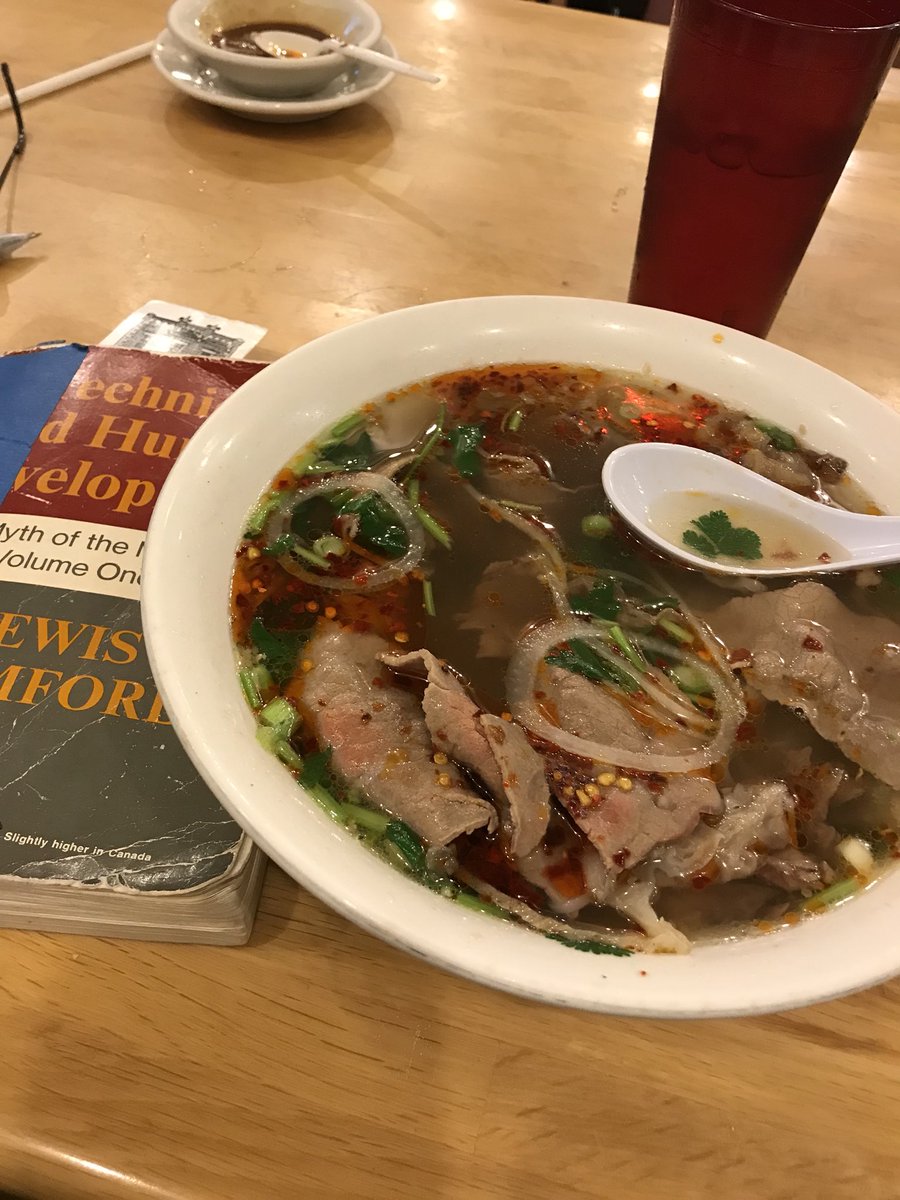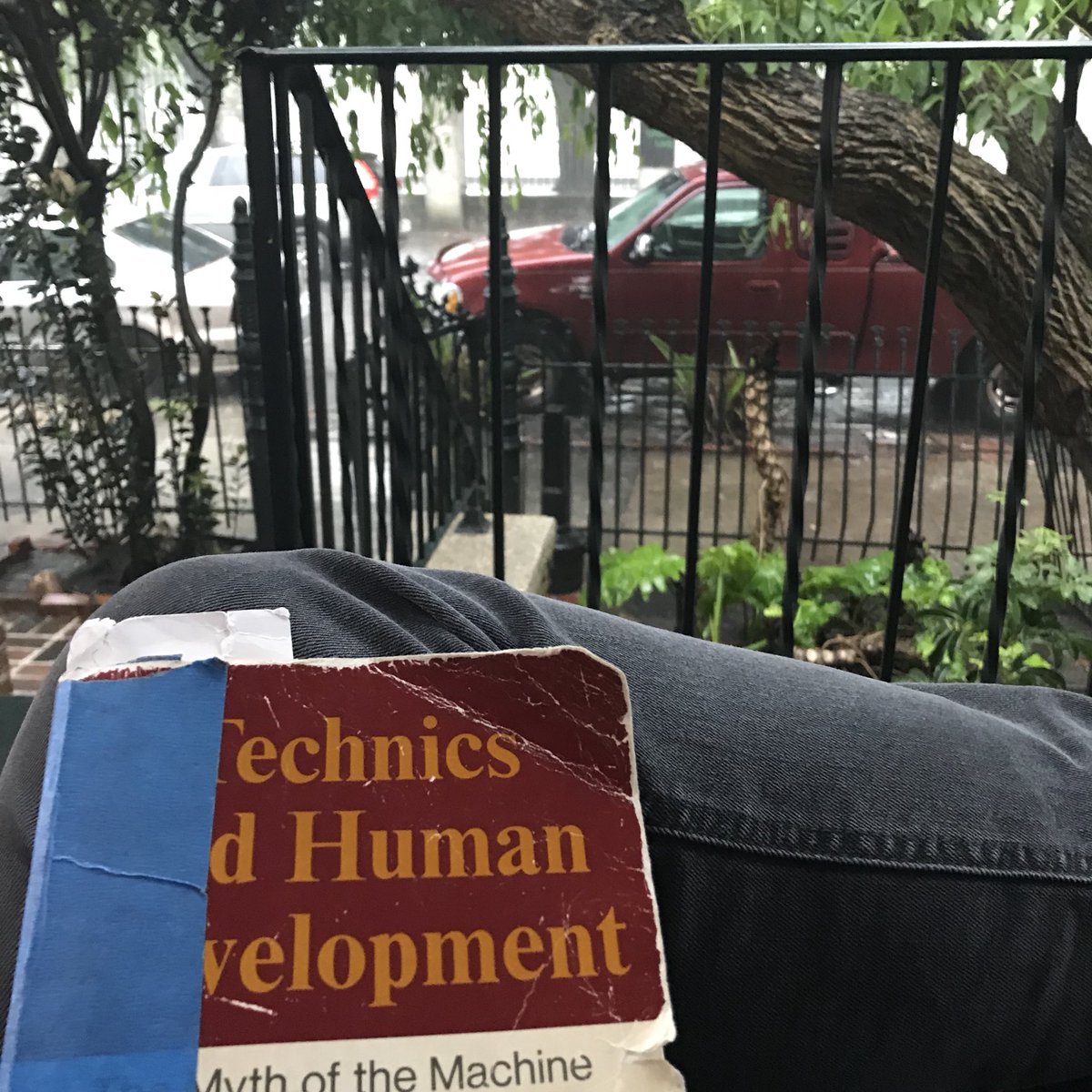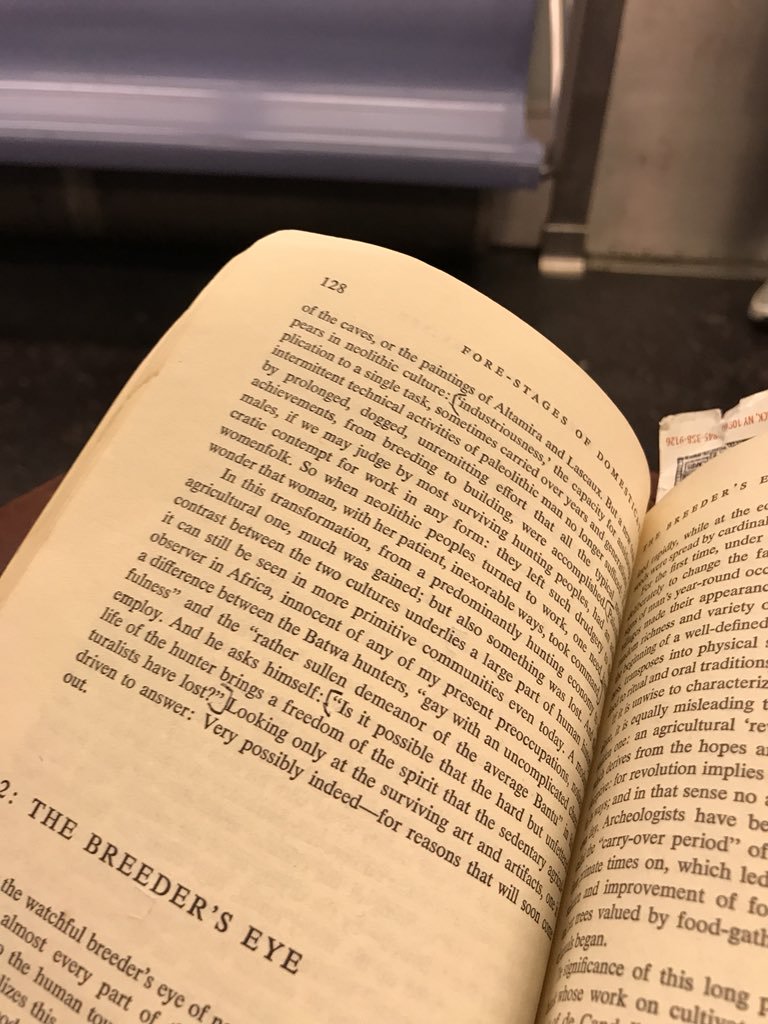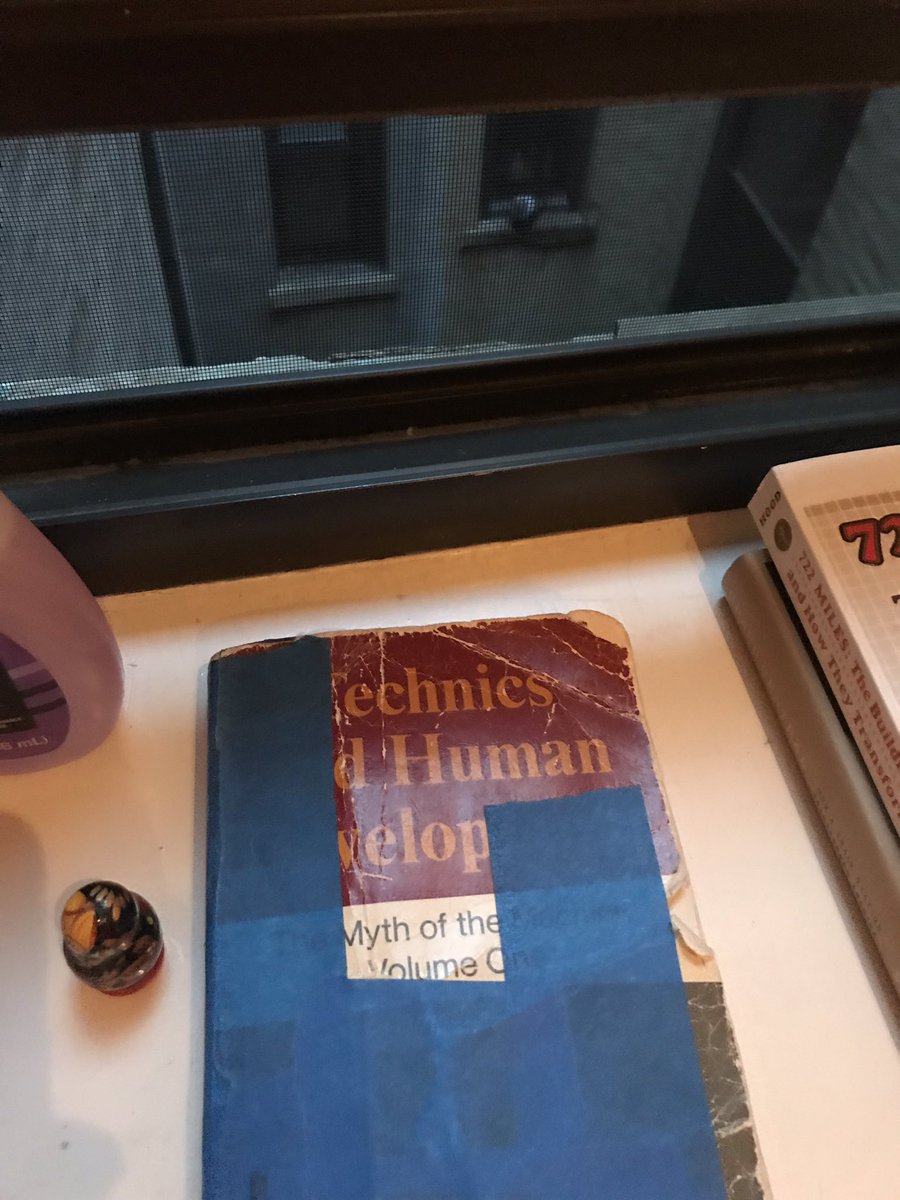How the small communities of the neolithic era felt the emergent pull of the industrialization, from the perspective of technology philosopher Lewis Mumford.
Neolithic Living: Imagine a time before people organized themselves into governments, when the land's abundance was more plentiful than anyone could consume whole. Farmers, hunters, and craftsfolk loosely assembled into villages to trade their wares.
Innovation, varied and widespread, was a practical matter in these parts, a refining of tools, "without disrupting the ancestral patterns," as technology philosopher Lewis Mumford in his 1966 book, "Technics and Human Development." These communities didn't have much need for weapons, archaeological digs suggest, though other technological gadgets, such as pots, were routinely created.
Let’s call these technologies “democratic” ones, born as they are from the community.
Certain projects that needed to be done, or deemed needed to be done, couldn’t be done at the village level, however, and they required a larger organizing entity. This was born the need for the kingship, as an organizing entity to pull all of the communities together.

For instance, irrigation jobs to bring more water into the valleys would require a coordinated effort among villages. Repairing flood damage and storing food for the winter time were also both better done through larger, more-coordinated efforts.
“During such crises there was need for an unchallengeable authority that could marshal the manpower of many communities and ration their resources equitably,” Mumford wrote. If the ruler was successful in his effort, the glory, and resulting institutional power, would accrue to him.
The kingship, in effect, took over the power of the neolithic, agriculturally-focused communities, sharpening their focus, reaping the seasonal windfalls, and in turn possessing a sway that the community leaders did not. Kingship turned power into an abstraction, something that became an end in itself.
The idea of kingship itself must have mutated into being “at the point where the paleolithic hunting chief, the first among equals, passes over into the powerful king, who takes to his own person all the powers and prerogatives of the community,” Mumford wrote.
“It is hunting that cultivates the initiative, the self-confidence, The ruthlessness that kings must exercise to achieve and retain command; and it was the hunter’s weapons that backed up his commands.”
The vantage of a kingship might afford, shall we say, a clear vista to other potential threats, or opportunities, for the people? Building a Pyramid to honor a great leader deceased, perhaps? The Great Pyramid would have required the equivalent at least 2,500 horsepower to move the boulders in place, their joints, with a watchmaker's precision, no more than one ten-thousandth of an inch thick. John Maynard Keynes posited that pyramid building was "a necessary device for coping with the surplus labor in an affluent society whose rulers are averse to social justice and economic equalization," Mumford wrote.

The power of the populace could also be applied towards warfare. Until then, neolithic tribal warfare consisted mostly skirmishes between communities, possibly over something like stolen sheep. Or small warrior gangs who might have roamed the hills extracting "protection" payments from the (weapon-less) landowners.
Kingdoms implied protection from other, possibly invading, kingdoms, a threat real or imagined. "War was probably the byproduct of a religious ritual whose vital importance to the community far outweighed those mundane gains in territory or booty or slaves," Mumford wrote. In fact, it must have been obvious to even a half-witted king that what expropriation the troops brought back, was, but, over time, meager compared to the regular taxing of the populace.
In any case, the technologies created by these centralized efforts can be thought of as "authoritarian," meaning they require a central organizing party.
The authoritarian technologies, compared to the democratic ones, demanded a high degree of mechanical efficiency. These technologies were born from copper, bronze, and iron. An increased production of iron "made it cheaper to equip armies and tempted rulers to embark on more extensive conquests," Mumford wrote.
The prevalence of iron in the first century seemed to lead to a slackening of other, perhaps more democratic, technologies. Creative slacking also appeared during times of war, as the chances for passing a craft from one to another had diminished.
"Both kinds of technics had their virtues and their disadvantages," Mumford concluded of the balance between decentralized democratic technologies and centralized ones. "Ideally, each mode had something to give to the other: but neither established for long any effective cooperation."

Rise of the Human Machine
Long before humans created machines they learned how to make machines from themselves.
"It was the king alone who had the godlike power of turning men into mechanical objects and assembling these objects in a machine," Mumford wrote. The human machine was the first one to be, in theory infinitely scalable. "There was no theoretic limit to the number of hands it might control or the power it might exert."
The king’s organization, however, came not without a fair amount of human suffering and alienation, as you might guess. "Only those who were sufficiently docile to endure this regimen -- or sufficiently infantile to enjoy it -- at every stage from command to execution could become efficient units in the human machine," Mumford wrote.
Coercion also helped the cause of the kingship. The time period around the beginning kingship in Egypt coincides, Mumford pointed out, with mass graves filled with cracked skulls. "Brutal compulsion was the necessary accompaniment of the large-scale organization and the extensive order introduced by kingship," Mumford wrote.

This regimentation must have had a negative effect on societies as a whole. Only a select few, the kings and the barons, reaped the benefits from the work of the many. In the process, the laborers' autonomy, creativity, and self-regulation withered. "Each standardized component, below the top level of command, was only part of a man, condemned to work at only part of a job and live only part of a life." Division of labor fractures individual wholeness, it turns out. Protesting would have been difficult, given the difficulty of identifying the mechanical forces at work that kept everyone in place.
And this human machine, or the power and technology accrued to it, could take a dark turn as well. Mumford grimly notes, that from gunpowder to nuclear warheads, "every increase of effective power, extravagantly sadistic and murderous impulses erupted of the unconsciousness."* This has held true throughout all of mankind, as paranoia and "tribal delusions of grandeur" have led to "murderous hatreds, and atrociously inhumane acts."
It would appear humankind was capable of both organized labor and organized self destruction, with both driven by the same primal forces and mechanical methods of execution.
![]()
Other Notes and Quotes
“Under the protective symbol of his god, housed in a massive temple, the king, who likewise served as high priest, exercised powers that no hunting chief would have dared to claim merely as leader of his band.”
Advance of civilization required both the neolithic habits of persistence and orderly drill, as well as the hunter’s “fitful spurts of energy” and acceptance of uncertain rewards.
“In ancient times war was frequently suspended by common consent till the harvest was gathered.”
“Should we be surprised, then, to find that the period of political unification of the Upper and Lower Nile Valley, which marks the beginnings of kingship in Egypt, coincides with mass graves in which are found an unusual quantity of cracked skulls.”

“But in the end the sky gods prevailed. The phenomena of the sky, measured with increasing care and exactitude, gave the assurance of an orderly world, part of which at least was lifted above primal chaos or human caprice.”
“The problems of regulating river flow and repairing flood damage, of apportioning water to irrigation, of storing sufficient food annually to avert famine before the next crop could be gathered—all these proved increasingly beyond the competence of any local community.”
“When kingship replaces the powers of the agricultural communes, their local functions were taken over on a grand scale by the central authority, in either the temple or the palace.”
“Brutal compulsion was the necessary accompaniment of the large-scale organization and the extensive order introduced by kingship.”
“The current separation of art and technics ... is a modern solecism.”
“Even the most cursory historic survey of the arts reveals a fertility of invention in design unsurpassed by any utilitarian equivalent in engineering until the 19th century.”
"The earliest uses of writing were not to convey ideas, religious or otherwise, but to keep temple records of grain, cattle, pottery, fabricated goods, stored and disbursed."

"Secret knowledge is the key to any system of total control."
"From the standpoint of human life, indeed of all organic existence, this assertion of absolute power was a confession of psychological immaturity--a radical failure to understand the natural processes of birth and growth, of maturation and death."
"Each new monarch in the Pyramid Age built a new capital for use in his own lifetime,"
"According to Akkadian and Babylonian scriptures, the gods created men in order to free themselves from the hard necessity of work. Hence, as in so many other places, the gods prefigured in fantasy what kings actually did."
"...Those who would reduce technics to the conquest of time and space and energy."
"This was not merely a revolt against the system of regimentation that had elevated the ambitious and ruthless and depressed the cooperative and amiable: It was revolt against all the pomps and vanities of worldly success, against ancient rituals that had become empty."

